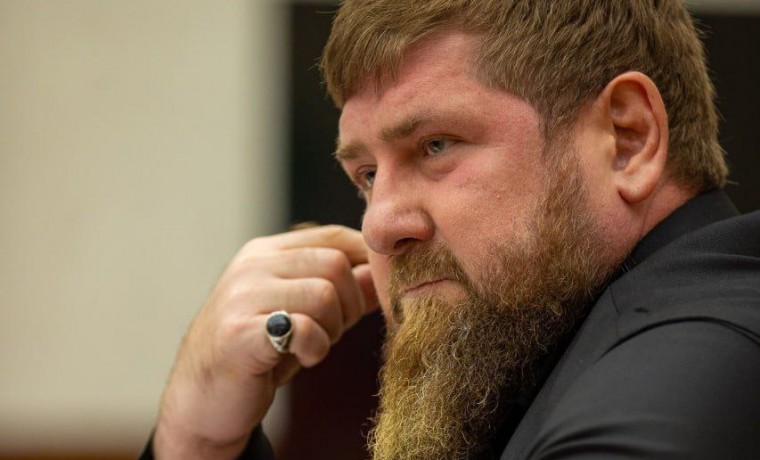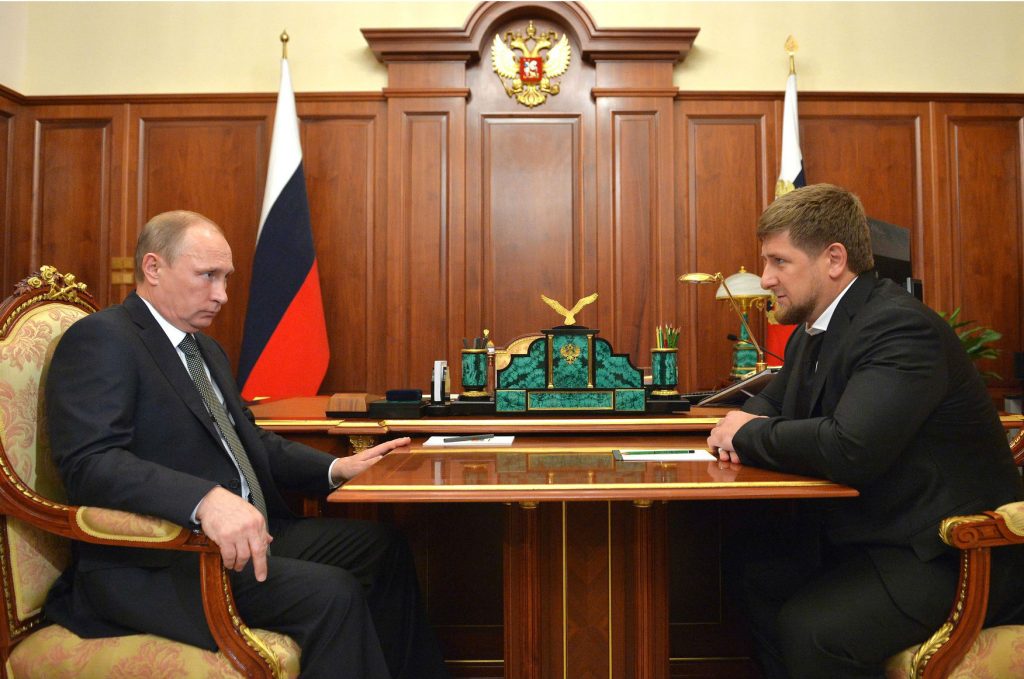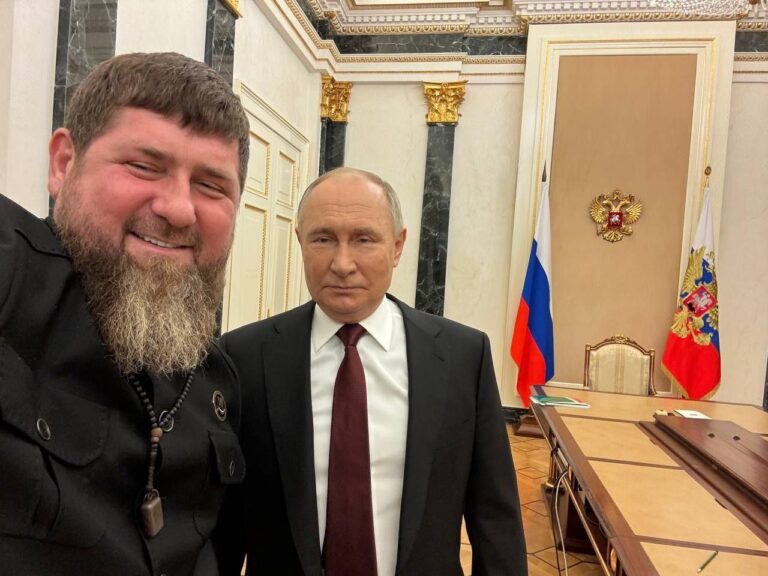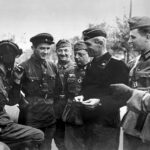Ramzan Kadyrov asking the Kremlin to resign him (or signaling desire to step down)—if true—is likely driven by a combination of personal vulnerability, strategic calculation, and pressure from Moscow. Here’s a breakdown of the main drivers behind such a move:
1. Severe Health Issues
- Persistent rumors since 2023 suggest Kadyrov suffers from a serious illness—likely kidney or liver-related.
- He’s been seen with visible swelling, limping, and periods of public disappearance.
- Medical treatment in Moscow or abroad (possibly UAE) was reportedly sought in 2023–2024.
- If his health is deteriorating, he may want to pre-emptively control the succession and exit on his terms, rather than collapse in office.
2. Pre-emptive Political Move
- Kadyrov may be testing Kremlin response: offering resignation to signal fatigue or loyalty, but staying if asked to.
- This has been a tactic used by other loyalists (like Russian governors) to extract more guarantees, immunity, or budgetary concessions.
- By resigning “voluntarily,” he avoids a humiliating ouster and ensures his family’s continued role in Chechnya.
3. Moscow’s Growing Discomfort
- After Prigozhin’s mutiny and death, the Kremlin has grown wary of powerful paramilitary actors like Kadyrov.
- Kadyrov’s personal army (Kadyrovtsy), propaganda operations, and de facto sovereignty in Chechnya have become harder to justify, especially as:
- His troops underperform in Ukraine,
- He publicly criticizes Russian generals,
- He pushes his son Adam into national spotlight.
- The Kremlin may be nudging him to transition power or reduce his influence under a controlled narrative.
👪 4. Succession Planning (Enter Adam Kadyrov?)
- Kadyrov is aggressively promoting his teenage son Adam—decorated, praised in Kremlin circles, and rumored to be groomed for succession.
- This move would be unconstitutional without Kremlin approval, so asking to resign might be a bargaining chip: “Let me go, but keep my clan in charge.”
- He likely wants to transform his personal rule into a dynastic system, like a local monarchy under Russian protection.
📉 5. Loss of Strategic Usefulness
- Kadyrov’s role as a loud supporter of the Ukraine war no longer adds unique value to Moscow.
- His fighters are less effective, and the propaganda optics of “loyal Muslim warriors” have diminished impact, especially with Wagner out of the picture.
- If he’s becoming a liability (due to international scrutiny or internal power games), Moscow may allow or even encourage his exit.
Conclusion
If Kadyrov is seriously offering to step down, it’s less about a sudden change of heart and more about a calculated attempt to secure his legacy, protect his family, and avoid being forced out. Whether the Kremlin accepts it or plays along will depend on their succession plan and trust in his inner circle.
The chances of Ramzan Kadyrov resigning in the near future remain low, but not impossible. Several factors point to why he’s still firmly in place—and what could eventually change that:
Why Kadyrov Is Likely to Stay (for now)
- Loyalty to Putin
Kadyrov is one of Vladimir Putin’s most loyal regional leaders. His personal allegiance is political capital, and in exchange, he enjoys a wide degree of autonomy in Chechnya. - Security Control
He maintains a powerful personal militia (the “Kadyrovtsy”) and serves as a key enforcer of Kremlin interests in the North Caucasus. Replacing him risks destabilizing a region that has seen two brutal wars since the 1990s. - Information War Role
Kadyrov is a prominent figure in the propaganda space—used for projecting Russian strength, Muslim loyalty to Moscow, and “volunteer” troop contributions to Ukraine. - No Clear Successor
Neither Moscow nor Grozny has prepared a credible, loyal replacement with similar control over local clans and security.
What Could Trigger His Resignation
- Health Issues
There have been recurring rumors, including in 2023 and 2024, about serious health problems. If credible, health concerns could force a step-down or semi-retirement. - Power Reshuffle in Moscow
If Putin weakens or is replaced, Kadyrov may lose his patron and become politically vulnerable. - Overreach or Rebellion
If Kadyrov’s actions (e.g. attacks on other regional elites, military freelancing) are seen as a threat to the centralized power vertical, the Kremlin may engineer a quiet exit. - Increased International Pressure
Mounting sanctions or international legal actions against him or his family could push Moscow to distance itself—especially if maintaining him becomes diplomatically costly.
Possible Exit Scenarios
- “Voluntary Resignation” for health or religious reasons.
- Promotion to a ceremonial federal role to remove him while saving face.
- Internal Chechen succession, possibly with one of his sons or loyalists replacing him under Kremlin guidance.
Bottom Line:
Unless something forces Putin’s hand, Kadyrov is likely to remain in power as long as he stays loyal and useful. But his position is not immortal—health, succession politics, or shifts in Moscow could all alter the equation.
Would you like a short timeline of his major political moves or influence in Ukraine war to complement
Timeline: Kadyrov’s Rise and Strategic Moves
2004–2007: Consolidation of Power
- 2004: After the assassination of his father, Akhmad Kadyrov, Ramzan assumes de facto leadership in Chechnya.
- 2007: Officially appointed President of the Chechen Republic with Putin’s blessing. Begins building a personal security structure (Kadyrovtsy).
2007–2014: Total Control and Cult of Personality
- Crushes insurgent groups in Chechnya using brutal methods.
- Centralizes power, establishes de facto immunity from federal oversight.
- Promotes a cult of personality, combining Chechen traditionalism and Islamic conservatism with loyalty to Moscow.
2014–2016: Rising National Influence
- Supports Russia’s annexation of Crimea and anti-Ukraine campaigns.
- Begins portraying himself as a pan-Russian Muslim leader loyal to Putin.
2018–2020: Regional Clashes and Defiance
- Engages in conflicts with Russian federal officials (e.g., FSB, governors).
- Defies national pandemic rules, showcasing his quasi-sovereignty.
- Rumors of Kremlin concern over his growing autonomy emerge.
🔥 2022–2024: Ukraine War and Militarized Influence
2022: Invasion of Ukraine
- Sends Chechen units (Kadyrovtsy) to fight in Ukraine, mostly for propaganda value.
- Publicly criticizes Russian generals, including Defense Minister Shoigu and General Lapin.
- Seen by some as attempting to position himself as a parallel military commander.
2023: Loyalty Theater
- Intensifies pro-Kremlin messaging; offers to send more troops.
- Claims to personally coordinate combat operations—though many videos are staged far from front lines.
- Health rumors begin circulating (swollen appearance, hospital trips).
2024: Health and Political Maneuvering
- Promotes his teenage son Adam Kadyrov by awarding him medals, raising succession speculation.
- Rumors intensify about a controlled transition or ceremonial federal role.
- Wagner mutiny and death of Prigozhin shift the elite balance—Kadyrov reaffirms loyalty but remains cautious.
⏳ Current Dynamics (2025)
- Still in power, but delegating more visible roles to family.
- Maintains heavy propaganda use of “Kadyrovtsy” in Ukraine and Chechnya.
- Putin still protects him, but Moscow’s inner circle is reportedly monitoring him more closely than before.
Ramzan Kadyrov has cultivated a small but powerful circle of allies in the Kremlin, who have protected, empowered, and benefited from his loyalty—but that support is not unconditional and may be weakening. Here are his key allies, current status, and what role they play:
1. Vladimir Putin – Patron-in-Chief
- Kadyrov’s most important and direct ally is Putin himself, who personally empowered him after the death of Akhmad Kadyrov (Ramzan’s father) in 2004.
- Putin sees Kadyrov as someone who:
- Keeps Chechnya under control without direct Russian intervention.
- Shows extreme personal loyalty to him.
- Acts as a useful enforcer and propaganda weapon in both domestic and foreign contexts.
- However, Putin’s personal favor may be fading due to:
- Kadyrov’s growing unpredictability.
- His dynastic ambitions.
- His weakening military and political utility.
Bottom line: Putin still protects Kadyrov, but the alliance is transactional and could end if loyalty wavers or costs rise.
2. Sergei Kiriyenko – Deputy Chief of Staff of the Presidential Administration
- Kiriyenko oversees domestic political management, including nationalities policy and Chechnya.
- He has reportedly maintained quiet cooperation with Kadyrov, especially in managing the image of stability in the North Caucasus.
- He helped shield Kadyrov from some criticism after human rights scandals, but not publicly.
Bottom line: Kiriyenko values Kadyrov as a tool for control, but may distance himself if the regime sees him as a liability.
3. Nikolai Patrushev – ex-Secretary of the Security Council
- A key figure in Russian security and intelligence policy, Patrushev helped shape the “managed autonomy” model in Chechnya.
- He reportedly supported Kadyrov’s rise through FSB structures and sees him as a bulwark against Islamist insurgency.
- But Patrushev is also wary of excessive local autonomy, especially post-Prigozhin.
Bottom line: Patrushev is an ally in security circles, but will abandon Kadyrov if his forces challenge federal control.
4. Viktor Zolotov – Head of the National Guard (Rosgvardia)
- Kadyrov’s forces (Kadyrovtsy) are nominally under Rosgvardia since 2016.
- Zolotov is personally close to Kadyrov, calling him a “brother in arms.”
- Their cooperation intensified during the Ukraine war and during anti-opposition crackdowns.
Bottom line: A strong tactical ally—but Zolotov is loyal to Putin first. If ordered, he’d pull support from Kadyrov.
5. Yury Chaika (former Prosecutor General) and Igor Sechin (Rosneft CEO)
- Chaika defended Kadyrov during corruption scandals.
- Sechin, a powerful oil oligarch, had financial and logistical ties in the North Caucasus through Rosneft.
- These links helped Kadyrov build his parallel economic empire.
Bottom line: Oligarchic and legal allies, but largely quiet and opportunistic.
Declining Influence:
- After Prigozhin’s mutiny, the Kremlin is clearly reassessing powerful non-state actors, and Kadyrov is under review.
- His support network is still functional—but fragile and conditional.
Post-Kadyrov Chechnya: Scenarios and Political Shifts
1. Power Vacuum and Elite Competition
Kadyrov has ruled Chechnya with near-total control for over 15 years, centralizing power through a personalist regime. His resignation could trigger a power vacuum, with several competing factions:
- Kadyrov’s inner circle: His sons and trusted lieutenants (like Adam Delimkhanov) may try to preserve the “Kadyrovite” system.
- Moscow-appointed technocrats or siloviki: The Kremlin may impose a loyal outsider or FSB-linked figure to reassert federal control.
- Islamist elements or traditional clans: Suppressed for years under Kadyrov’s rule, they may seek to reassert influence.
2. Rise of Moscow’s Direct Control
Putin has long tolerated Kadyrov’s autonomy in exchange for loyalty and security. A post-Kadyrov Chechnya could see re-centralization, with Moscow reducing Chechnya’s exceptionalism (e.g., special subsidies, paramilitary independence).
- This may trigger local resistance or discontent.
- The FSB or Ministry of Internal Affairs could play a stronger role in day-to-day governance.
3. Security Risks and Insurgency Resurgence
Without Kadyrov’s brutal suppression tactics, underground Islamist networks or separatist factions may re-emerge. Even limited political instability could embolden these groups, especially in the southern highlands or diaspora communities abroad.
4. Elite Fragmentation and Clan Conflicts
Kadyrov has heavily relied on patronage and clan-based politics, rewarding his allies while marginalizing rivals. A sudden exit could unleash inter-clan rivalries, destabilizing the region politically and socially.
5. Economic and Human Rights Consequences
Kadyrov’s regime has depended on massive federal subsidies. A shift in leadership might:
- Lead to redistribution of economic favors, causing unrest.
- Open space for renewed human rights advocacy or legal reckoning — although this depends heavily on the nature of his successor.
If Ramzan Kadyrov remains in power, the trajectory of Chechnya and its relationship with Moscow will likely follow a continuation of authoritarian consolidation, deeper integration into Kremlin power structures, and a tightening grip on dissent. However, this continuity also carries risks. Here’s an analytical breakdown:
Scenario: Kadyrov Stays in Power — Stability or Stagnation?
1. Continued Personalist Rule and Militarization
Kadyrov would likely deepen his personal rule, relying on:
- Kadyrovtsy paramilitary forces, which remain loyal to him personally rather than to federal institutions.
- Further personality cult-building, especially around his sons, to prepare the ground for dynastic succession.
This could solidify stability in the short term but increase institutional fragility, making Chechnya vulnerable to crisis if Kadyrov’s health deteriorates or Kremlin support shifts.
2. Dynastic Succession Planning Intensifies
Kadyrov may accelerate efforts to groom one of his sons — especially Adam Kadyrov — as heir. This would include:
- Prominent public appearances.
- Political appointments.
- Symbolic roles in religious, youth, or military structures.
Such moves could trigger elite discomfort in Grozny and quiet skepticism in Moscow, particularly among those wary of hereditary rule in a federal republic.
3. Reinforced Alliance with the Kremlin — But on Shaky Grounds
Kadyrov’s loyalty to Vladimir Putin remains the cornerstone of his survival. If Putin continues to need Chechen loyalty for security or symbolic reasons (e.g., in Ukraine), Kadyrov stays safe. But:
- His increased unpredictability, including odd public behavior and rumors of ill health, makes some in Moscow uneasy.
- The FSB and segments of the military elite have long resented his autonomy and fear his long-term ambitions.
4. Suppression of Opposition and Civic Space
Chechnya under continued Kadyrov rule would see:
- Absolute repression of dissent, including forced disappearances, torture, and exile of critics.
- Intensified Islamization of governance — such as moral policing and use of religion for political ends.
- A clampdown on minority voices, such as women’s rights activists, LGBTQ+ individuals, and even traditional clan elders who resist his dominance.
5. Implications for the North Caucasus and Russia
- Kadyrov’s strength could be seen as a green light for similar personalized fiefdoms in the region.
- His role in Ukraine, including sending Chechen units, makes him a high-profile figure — both for the Kremlin and international sanctions regimes.
- If he stays but deteriorates physically or mentally, a prolonged leadership crisis could unfold quietly behind the scenes, destabilizing the entire Chechen power structure.
Several scenarios could potentially worsen relations between Vladimir Putin and Ramzan Kadyrov, leading to political tensions or even a collapse in their alliance. While their relationship has largely been one of mutual benefit, Kadyrov’s autonomy and unpredictability present potential risks for Putin, especially as internal and external pressures grow. Here’s a breakdown of possible factors:
Factors That Could Worsen Relations Between Putin and Kadyrov
1. Kadyrov’s Growing Autonomy and Challenges to Kremlin Authority
Kadyrov’s increasing independence, particularly if he starts to openly challenge federal authority or bypass Kremlin directives, could provoke a rift. Specific triggers could include:
- Refusal to follow federal orders or implementing policies at odds with Moscow’s objectives.
- Publicly disputing decisions made by Putin or the central government, especially on issues related to Chechen governance or Russia’s role in conflicts like Ukraine.
- Direct power struggles: If Kadyrov takes more direct control of federal institutions in Chechnya or even beyond, it might be seen as a challenge to Putin’s grip on power in Russia.
2. Personal Ambitions and Dynastic Plans
Kadyrov’s succession plans could be another source of friction. While Putin may allow Kadyrov to create a dynastic system within Chechnya, a blatant move toward dynastic rule could be perceived as too much of a threat to federal unity:
- The grooming of his son for leadership in Chechnya might be seen as a move to establish a hereditary fiefdom, which could undermine Putin’s concept of centralized power.
- If Kadyrov’s sons become more influential and push for more independence or public power, Putin may see it as a challenge to his authority.
3. Kadyrov’s Disrespect for Putin’s Image or Critici
Despite Kadyrov’s loyalty to Putin, his public behavior and statements could cross a line. For example:
- Criticizing Putin’s decisions, especially on matters like foreign policy (e.g., the war in Ukraine or relations with the West) could trigger a backlash from the Kremlin.
- Making independent foreign policy moves (such as aligning more with countries or groups opposed to Russia’s interests) could provoke Putin, who values the unity of his foreign policy direction.
- Disrespecting Putin publicly, whether by subtle hints or outright accusations, could quickly deteriorate their relationship.
4. Failure in the Ukraine War or Military Setbacks Involving Chechen Forces
Kadyrov has been a vocal supporter of Russia’s military actions in Ukraine, but if Chechen forces are involved in significant failures or military setbacks, it could result in:
- Loss of credibility for Kadyrov, undermining his standing with Putin.
- Embarrassment for the Kremlin if Kadyrov’s forces are publicly blamed for failures or human rights abuses, especially in front of Russia’s domestic audience or the international community.
- Increased pressure on Putin from nationalist factions and the Russian military establishment to distance himself from Kadyrov and Chechnya’s heavy-handed tactics.
5. Financial or Economic Strain Due to Chechen Autonomy
Kadyrov’s policies and independence come with a cost. If Chechnya’s economic needs or self-sufficiency efforts start to put a strain on Russia’s finances or if Chechen business interests align with outside powers (such as China or Iran), it could cause friction with Moscow:
- Diversion of federal funds to Chechnya could raise suspicions in the Kremlin about Kadyrov’s loyalty and long-term intentions.
- A greater Chechen economic footprint that competes with federal interests, such as through oil, gas, or infrastructure deals, could create conflict.
6. Kadyrov’s Increased Popularity and Potential Influence Beyond Chechnya
If Kadyrov gains a following outside Chechnya, especially from more nationalist circles or militant groups, it could pose a threat to Putin. Should Kadyrov develop significant political capital, this could make him seem like a competitor to Putin’s leadership.
- His militarized image and role in Russia’s national security apparatus could put him in direct competition with other powerful figures within Russia’s power structure, such as Siloviki (security services) or military leaders.
- A military or paramilitary presence outside Chechnya could prompt suspicion in Moscow about his long-term ambitions.
7. Increasing Social Unrest or Chechen Opposition to Kadyrov
While Kadyrov has maintained tight control over Chechnya, any signs of domestic unrest, especially from Chechen elites or the broader population, could weaken his position:
- Elite challenges within Chechnya, particularly from competing clans or factions within the Kadyrov family, could destabilize Kadyrov’s rule.
- Popular discontent, whether due to economic hardships, repression, or military losses, could lead to pressure on Kadyrov to change his approach, which could lead to a falling out with Moscow if Putin backs different factions in Chechnya.
Potential Consequences of Worsened Relations
- Kadyrov’s Diminished Influence: A break with the Kremlin could lead to Kadyrov losing his privileged position, potentially even leading to his removal from power if Putin sees him as a liability.
- Chechen Instability: Any conflict between Kadyrov and Putin could destabilize Chechnya, particularly if it leads to a power vacuum or internal political conflict.
Impact on Russia’s Reputation: A collapse in relations could further isolate Russia in the eyes of the international community, especially given Chechnya’s volatile history and Kadyrov’s controversial actions.

More on this story: Possible Kadyrov’s death to create turbulence in Russia

More on this story: Ramzan Kadyrov political and psychological profile




